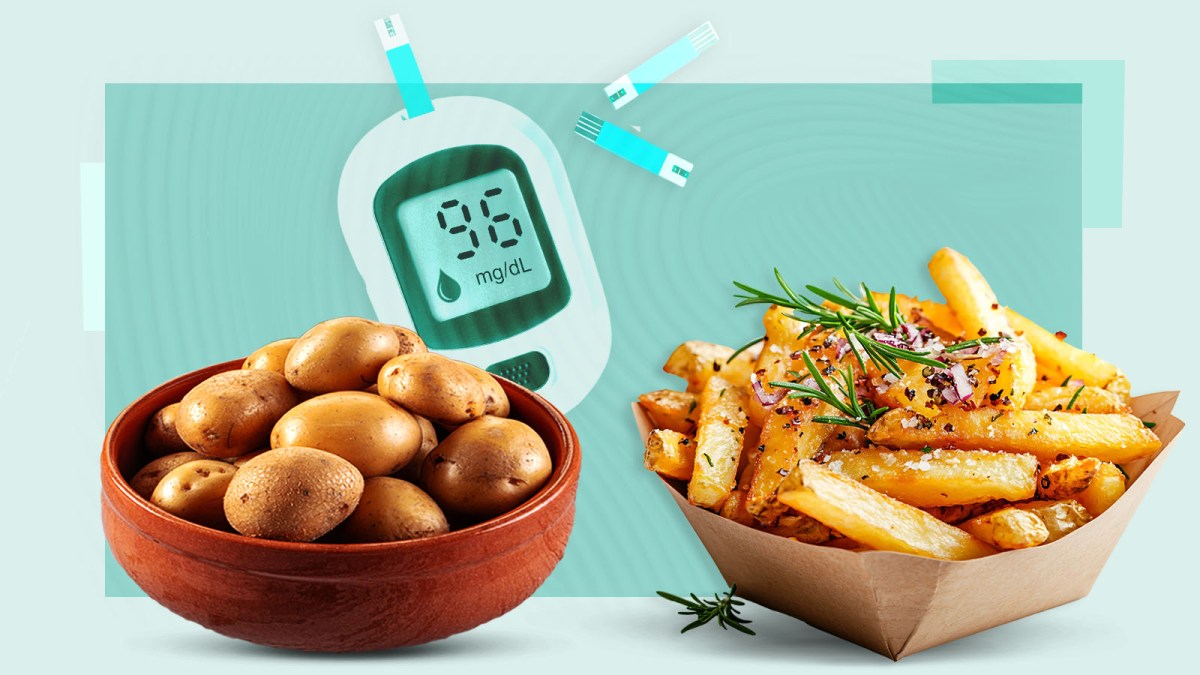For years, the humble potato has been demonised as unhealthy by proponents of low-carb diets such as the Atkins or Keto plans. But new research shows that spuds are not that bad for you — as long as they are not turned into chips and deep fat fried.
An international team, led by experts at Harvard and the University of Cambridge, found that eating lots of mashed, boiled and baked potatoes does not increase the risk of type 2 diabetes. But three portions of chips a week increased the risk of being diagnosed with the condition by a fifth.
The study, published in the BMJ, involved 205,000 people in the US who had their diet and health monitored over four decades, during which time 22,000 of them developed diabetes.
In the past, nutritionists had warned that potatoes increased the risk of type 2 diabetes and other health problems, as they are almost entirely carbohydrate, which is quickly absorbed by the body and can cause blood sugar spikes.
The new findings suggest that it is how you prepare the potatoes that matters the most. While every three servings of chips a week was associated with a 20 per cent increase in diabetes risk, a similar intake of mashed, baked or boiled potatoes was not.
But substituting potatoes for whole grains such as quinoa, brown rice or oats was found to decrease diabetes risk slightly, although white rice increased the risk compared with potatoes.

A comforting dollop of mashed potato was judged to be a healthy source of carbohydrate
GETTY IMAGES
The study’s author, Dr Seyed Mohammad Mousavi of Harvard University, wrote: “Although potatoes contain various nutrients such as fibre, vitamin C, potassium, polyphenols and magnesium, previous research has raised caution about their effects on health. The high starch content of potatoes, leading to a high glycemic index and load, combined with possible loss of nutrients and possible health risks resulting from various cooking methods, could contribute to adverse health outcomes.”
• Roasted, mashed or boiled? Hot tips from the potato queen
The study concluded that previous links between potatoes and diabetes were “primarily driven by intake of French fries” and that the health effects of potatoes “depend on the foods used as a replacement”.
In a linked editorial, Dr Daniel Ibsen and Dr Yanbo Zhang said: “Two key considerations are important … the method of potato preparation [and] the type of carbohydrate rich food to be replaced by minimally processed potatoes.

Homemade potato dishes are a minimally processed meal option
GETTY IMAGES
“With their relatively low environmental impact and their health impact, potatoes can be part of a healthy and sustainable diet, though whole grains should remain a priority.”
They noted that the findings correspond to other research showing that ultra-processed foods heighten diabetes risk. “French fries are often ultra-processed, whereas baked, boiled, or mashed potatoes are often minimally processed,” they said.
• Eating home-cooked food ‘helps you lose twice as much weight’
The potato was introduced to England in the late 16th century, and by the 18th century had become a staple crop, helping to sustain the rapidly growing population during the industrial revolution.
Since the 1970s, Britons have been buying fewer fresh potatoes, replacing them with processed shop-bought chips. Of the 4.4 million people in the UK with diabetes, 90 per cent have type 2, whose causes include obesity. Diabetes occurs when a person’s blood sugar becomes chronically high because the body stops producing or responding to the hormone insulin.
Dr Faye Riley, research communications leader at Diabetes UK, said: “This research shows that the link between potatoes and type 2 diabetes isn’t as clear-cut as it might seem.
“Diet is just one part of the picture, but this study suggests that how food is prepared can make a difference and reinforces the advice to prioritise whole grains and cut back on fried or heavily processed foods as a way to support a balanced diet and reduce your risk.”
